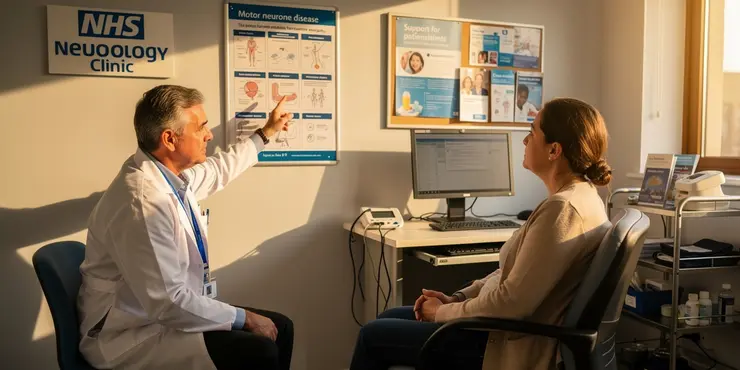
Find Help
More Items From Ergsy search
-
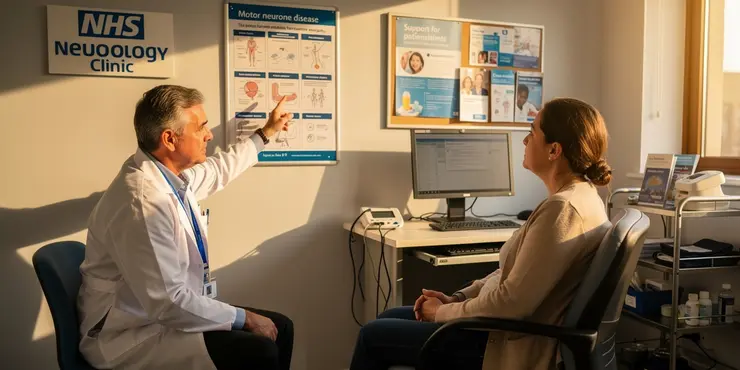
Is there a cure for motor neurone disease?
Relevance: 100%
-
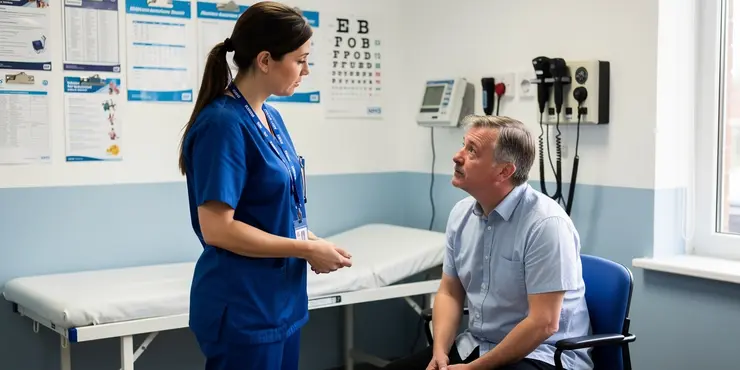
What is motor neurone disease?
Relevance: 86%
-
Are there different types of motor neurone disease?
Relevance: 84%
-
Is motor neurone disease hereditary?
Relevance: 81%
-

What causes motor neurone disease?
Relevance: 78%
-
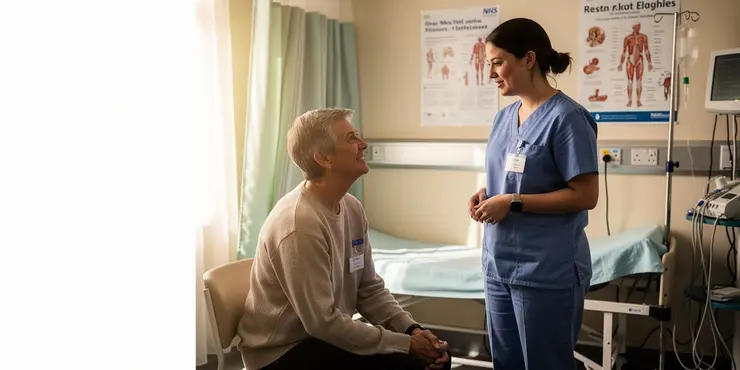
What are the primary symptoms of motor neurone disease?
Relevance: 75%
-

What treatments are available for motor neurone disease?
Relevance: 75%
-
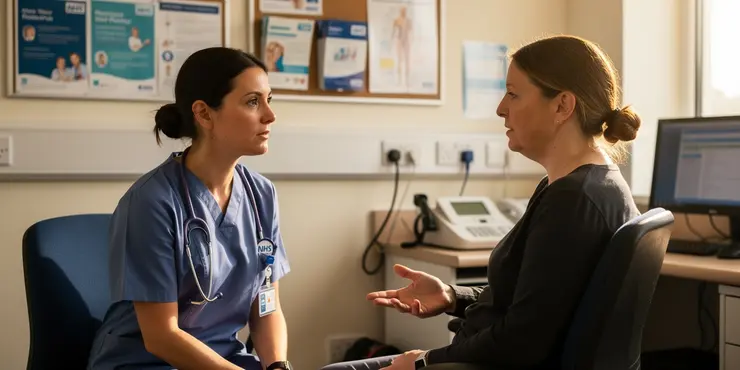
What role do genetics play in motor neurone disease?
Relevance: 70%
-
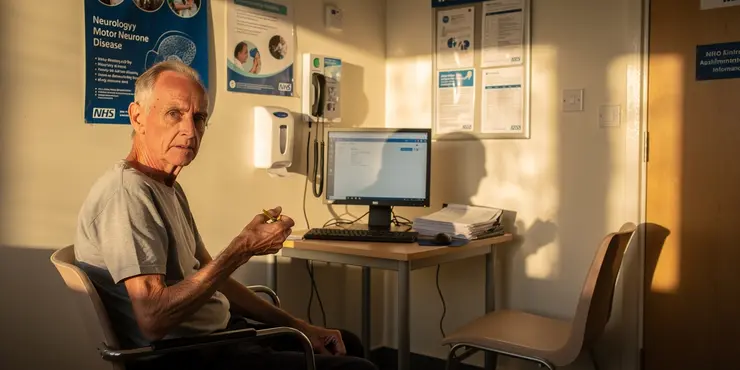
How does motor neurone disease affect the body?
Relevance: 70%
-
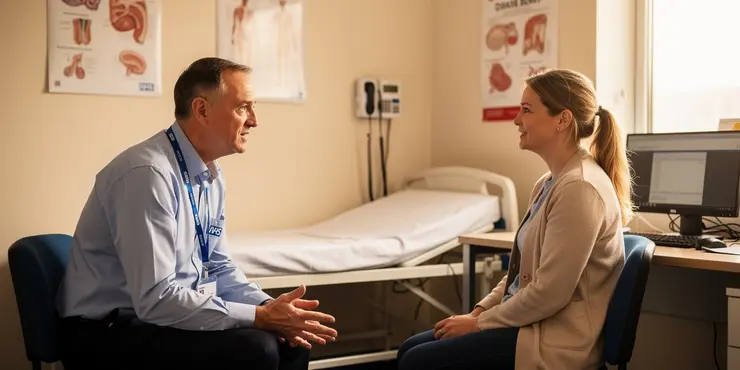
How is motor neurone disease diagnosed?
Relevance: 70%
-
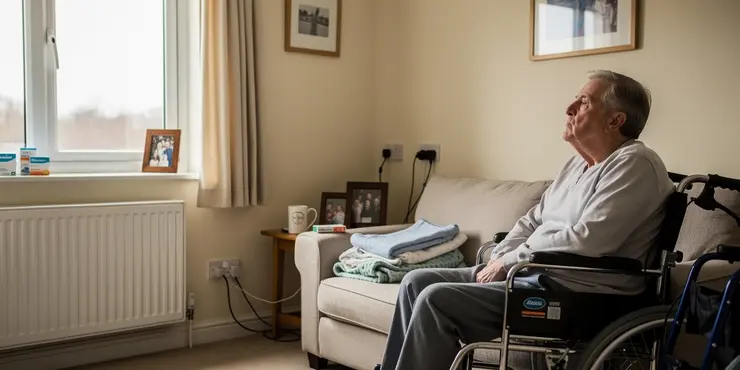
How is breathing affected by motor neurone disease?
Relevance: 69%
-

Motor neurone disease Julie's story | NHS
Relevance: 69%
-
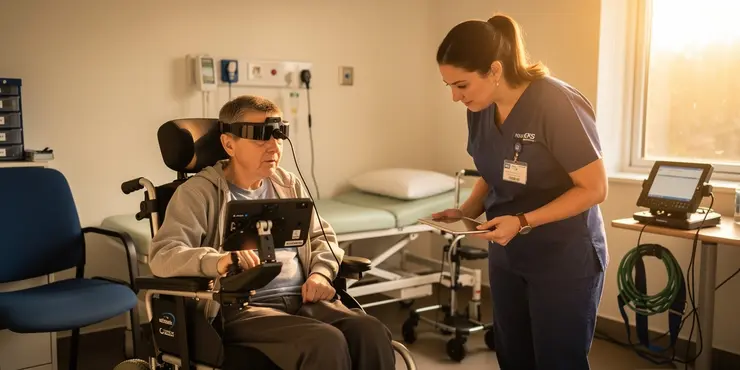
What assistive devices can help people with motor neurone disease?
Relevance: 68%
-
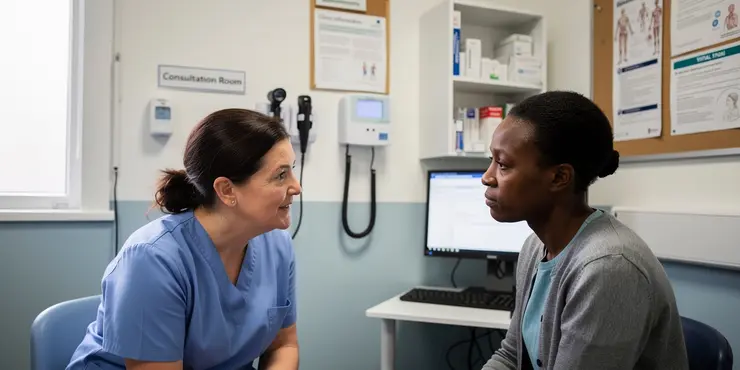
What is the life expectancy after a motor neurone disease diagnosis?
Relevance: 65%
-
How does motor neurone disease affect speech?
Relevance: 64%
-
Can lifestyle changes impact motor neurone disease progression?
Relevance: 64%
-
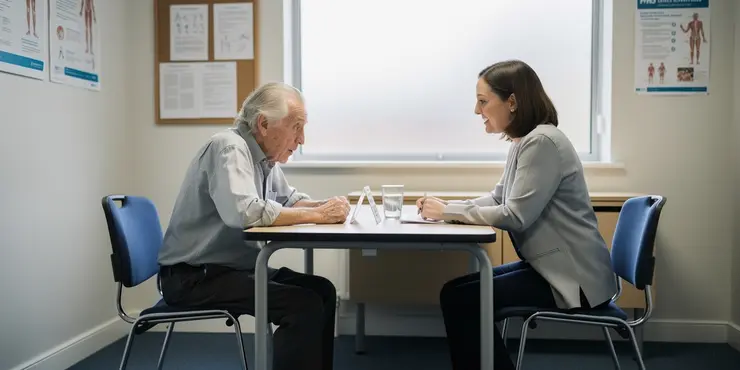
How does motor neurone disease impact swallowing?
Relevance: 62%
-

Voice banking service helps people live with motor neurone disease
Relevance: 60%
-

How can caregivers support someone with motor neurone disease?
Relevance: 60%
-

Are there support groups for individuals with motor neurone disease?
Relevance: 55%
-
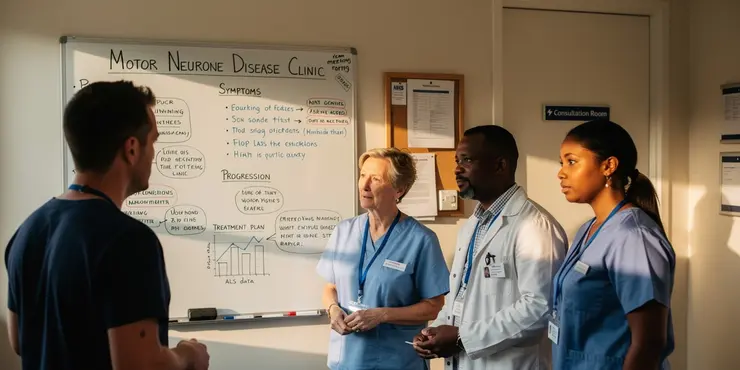
What research is being done on motor neurone disease?
Relevance: 53%
-
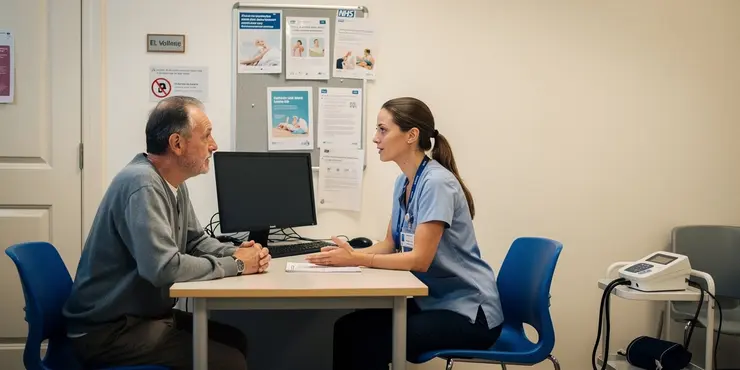
Who is at risk for motor neurone disease?
Relevance: 51%
-
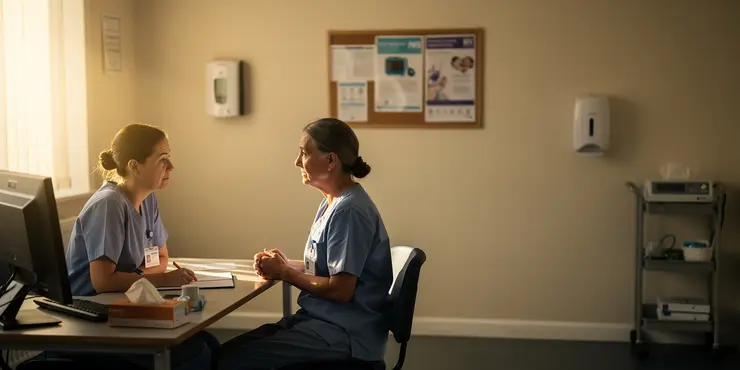
Can Huntington's disease be cured?
Relevance: 46%
-
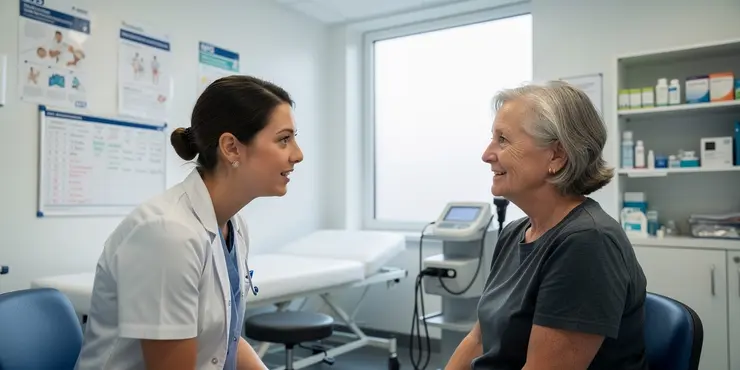
Is there a cure for Crohn's disease?
Relevance: 42%
-
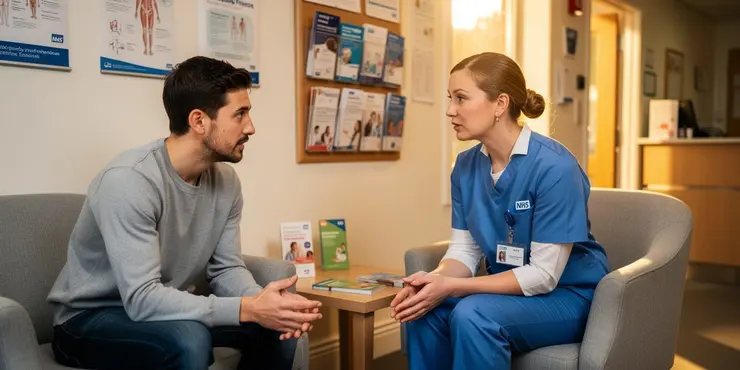
What is MND?
Relevance: 40%
-
How does Huntington's disease affect movement?
Relevance: 37%
-
What is Parkinson's disease?
Relevance: 35%
-
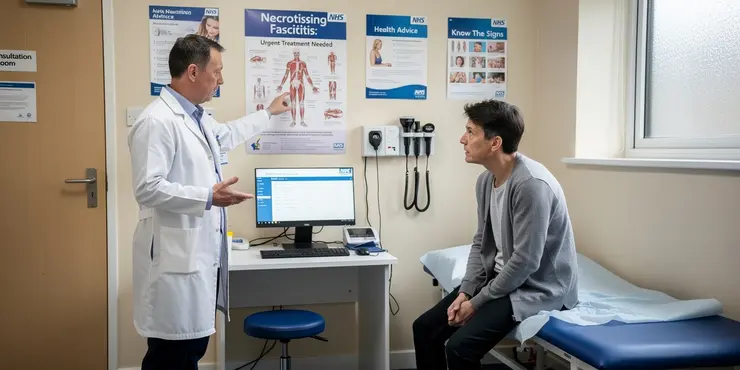
Can antibiotics alone cure flesh-eating disease?
Relevance: 33%
-

Is Huntington's disease fatal?
Relevance: 33%
-
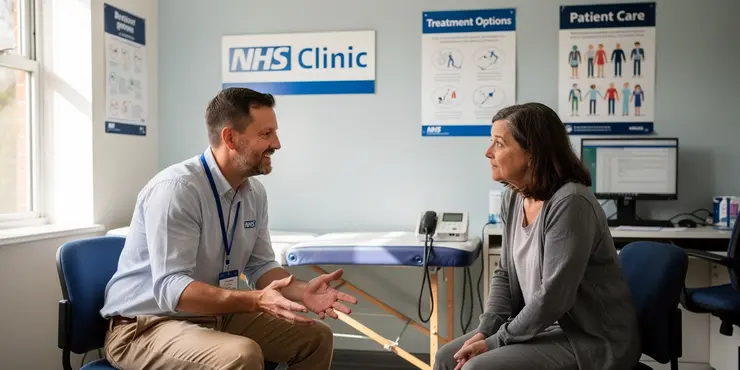
What research is being done on Huntington's disease?
Relevance: 31%
-
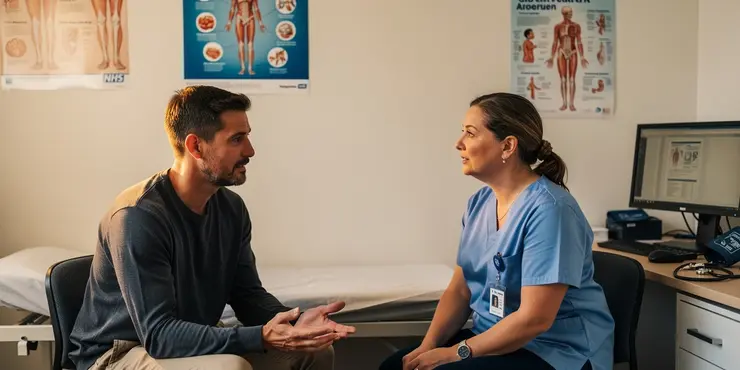
What causes Huntington's disease?
Relevance: 31%
-
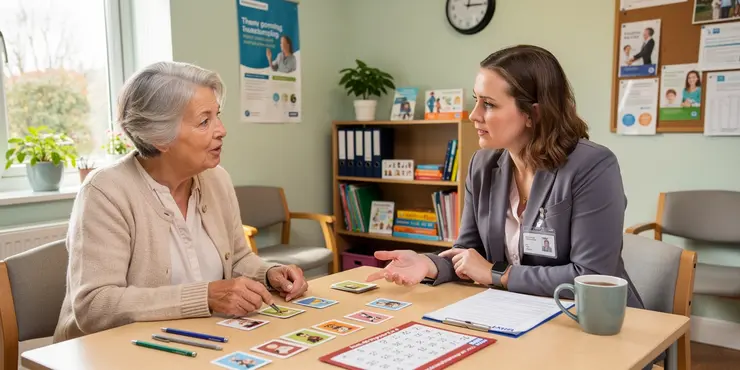
Is there a cure for dementia?
Relevance: 30%
-
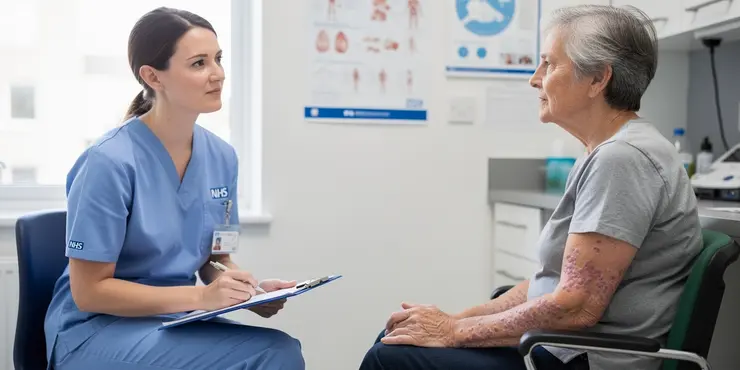
Is there a cure for psoriasis?
Relevance: 29%
-
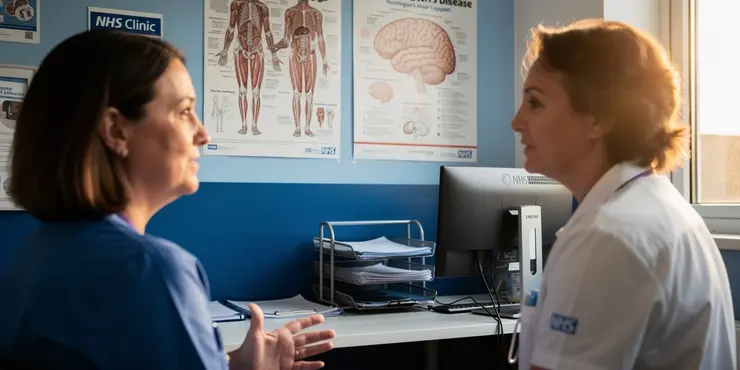
What is Huntington's disease?
Relevance: 28%
-

Is there a cure for ADHD?
Relevance: 27%
-
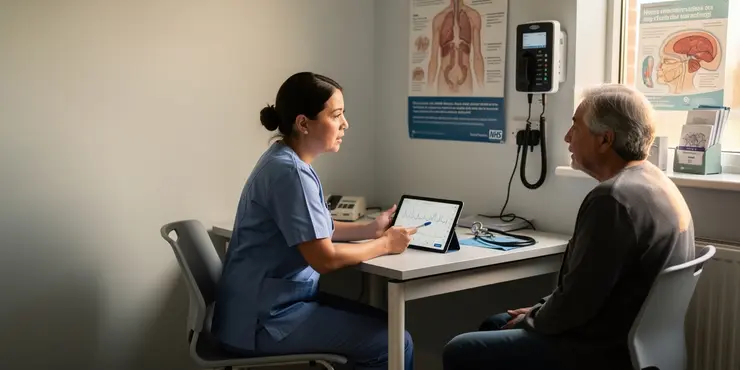
Can sleep apnea be cured?
Relevance: 27%
-
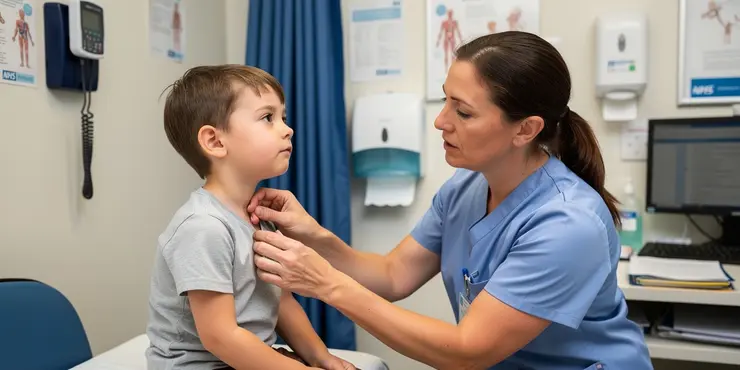
Is there a cure for eczema?
Relevance: 27%
-
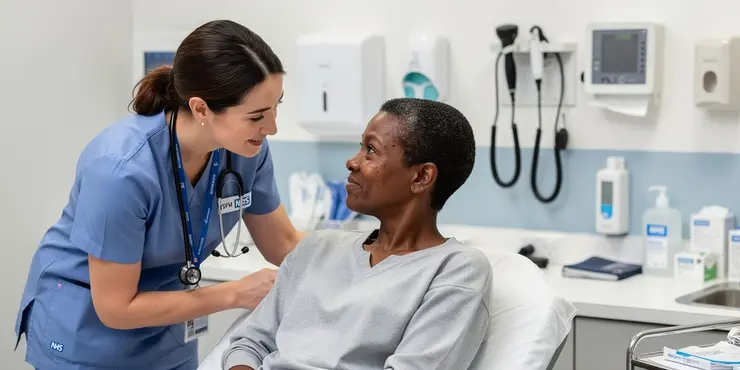
What is the principle of 'like cures like'?
Relevance: 27%
-

Can autism be cured?
Relevance: 26%
-
Can tinnitus be cured?
Relevance: 26%
Understanding Motor Neurone Disease
Motor neurone disease (MND), also known as amyotrophic lateral sclerosis (ALS), is a progressive neurodegenerative disorder that affects nerve cells in the brain and spinal cord. It leads to weakness and wasting of muscles, which can result in loss of mobility, difficulties with speech, swallowing, and breathing. Despite extensive research, the cause of MND remains largely unknown, although genetic and environmental factors are believed to contribute.
Current Treatments for MND
Presently, there is no known cure for motor neurone disease. However, various treatments are available that can help manage symptoms and improve the quality of life for those affected. Medications such as riluzole have been shown to modestly slow the progression of the disease. In addition to pharmaceuticals, supportive treatments including physiotherapy, occupational therapy, and speech therapy play crucial roles in maintaining function and independence for as long as possible.
Research and Advances
In recent years, research into MND has accelerated, with scientists around the world exploring new therapeutic avenues. Promising research areas include the study of gene mutations associated with familial cases of MND, which may provide insights into potential therapeutic targets. Stem cell therapy and gene therapy are also being investigated as potential treatments to slow or halt the progression of the disease.
Collaborative efforts such as those led by the Motor Neurone Disease Association in the UK are crucial in driving forward research and clinical trials. These initiatives aim to better understand the underlying mechanisms of the disease and develop novel treatments that could eventually lead to a cure.
Support and Resources
For those living with MND, access to information, support, and resources is vital. Organisations like the MND Association provide comprehensive support services for patients and their families, including information on symptom management, financial assistance, and counselling services. They also play an integral role in raising awareness and funding research efforts.
Looking to the Future
While a cure for motor neurone disease remains elusive, ongoing research offers hope for the future. Continued scientific advances and increased awareness are essential in the fight against this devastating condition. The commitment of researchers, healthcare professionals, and communities provides a strong foundation for progress towards finding a cure.
In summary, although there is currently no cure for MND, efforts in research and supportive care are providing hope and improved quality of life for those affected. With continued support and funding for scientific study, there is optimism that effective treatments or a cure can be developed in the years to come.
What is Motor Neurone Disease?
Motor neurone disease (MND) is also called amyotrophic lateral sclerosis (ALS). It is a disease that affects the nerves in the brain and spine. This makes muscles weak and smaller. It can make it hard to move, talk, eat, and breathe. We don’t know exactly what causes MND, but it might be linked to genes and things in the environment.
Can We Treat MND?
Right now, there is no cure for MND. But there are things that can help with symptoms. Some medicines can slow down the disease a little, like riluzole. Other treatments like physiotherapy, occupational therapy, and speech therapy help people keep moving and talking for as long as they can.
New Research and Ideas
Scientists are working hard to find new ways to help people with MND. They are looking at genes to see if they can find better treatments. They are also studying stem cells and gene therapy to see if these can stop the disease from getting worse.
Groups like the Motor Neurone Disease Association in the UK are helping scientists work together. They want to understand more about the disease and find new treatments.
Getting Help and Information
People with MND and their families need lots of support. Organisations like the MND Association give them information and help. They offer advice on managing symptoms, money help, and talking to someone if you are upset. They also help with raising money for research.
What Does the Future Hold?
We don’t have a cure for MND yet, but research gives us hope. Scientists and doctors are working hard to find answers. Support from people and money for research is very important. This makes us hopeful we will find successful treatments or a cure one day.
To sum up, there’s no cure for MND now, but research and care are bringing hope. With more support for studies, we hope to have better treatments or a cure in the future.
Frequently Asked Questions
Is there a cure for motor neurone disease?
Currently, there is no cure for motor neurone disease (MND), but research is ongoing to find effective treatments.
What treatments are available for motor neurone disease?
Treatment focuses on managing symptoms, which may include medications, physical therapy, and supportive devices.
Are there experimental treatments for motor neurone disease?
Yes, there are clinical trials investigating new treatments and therapies for MND. Patients should consult with their healthcare provider about possible participation.
What is the goal of current research on motor neurone disease?
The goal is to better understand the disease mechanisms and develop effective treatments to slow progression or ultimately find a cure.
Can lifestyle changes impact the progression of motor neurone disease?
While lifestyle changes cannot cure MND, a healthy diet, regular exercise, and stress management may help in managing symptoms.
Is stem cell therapy a cure for motor neurone disease?
Stem cell therapy is under investigation, but it is not currently a proven cure for MND.
What is Riluzole and how does it help in motor neurone disease?
Riluzole is a medication that can help extend survival and time to tracheostomy in some people with MND.
How does respiratory support help individuals with motor neurone disease?
Respiratory support, such as non-invasive ventilation, helps individuals breathe more easily and can prolong life.
Are there any gene therapies available for motor neurone disease?
Gene therapy research is ongoing, but there are no approved gene therapies for MND as of now.
How does physical therapy assist those with motor neurone disease?
Physical therapy is used to maintain mobility, manage pain, and improve quality of life for those with MND.
What role do support groups play for those with motor neurone disease?
Support groups provide emotional support, information sharing, and connection with others affected by MND.
How can occupational therapy benefit individuals with motor neurone disease?
Occupational therapy helps individuals maintain independence by teaching adaptive techniques for daily living activities.
Are there any dietary recommendations for managing motor neurone disease?
A dietitian can provide personalized dietary advice to ensure adequate nutrition, which is important for managing MND.
What is edaravone and how is it used in treating motor neurone disease?
Edaravone is a medication that may help slow the progression of functional loss in some people with MND, though its effects can vary.
What are the symptoms of motor neurone disease that treatments aim to alleviate?
Treatments aim to alleviate symptoms such as muscle weakness, stiffness, speech difficulties, and swallowing problems.
Is there a specific test for diagnosing motor neurone disease?
There is no single test for MND, and diagnosis is typically based on clinical evaluation and ruling out other conditions.
Can motor neurone disease be hereditary?
Yes, some forms of MND are genetic, meaning they can be inherited, although many cases are sporadic with no family history.
Are there any approved drugs specifically for amyotrophic lateral sclerosis (ALS)?
Yes, Riluzole and Edaravone are approved for treating ALS, a form of MND.
Is palliative care an option for those with motor neurone disease?
Palliative care is an important part of treatment for improving the quality of life and providing support for those with MND and their families.
What research breakthroughs are scientists hopeful for in the fight against motor neurone disease?
Scientists are hopeful about advances in understanding disease mechanisms, potential new drug targets, and emerging technologies like gene and stem cell therapies.
Can doctors make motor neurone disease go away?
Right now, there is no way to make motor neurone disease (MND) go away. But scientists are working hard to find ways to help.
What treatments can help with motor neurone disease?
Motor neurone disease (MND) affects the nerves in your body. Here are some ways to help manage it:
Medicines: Doctors can give you special pills to help with MND.
Therapy: Working with a therapist can help keep muscles strong and help with speech and movement.
Equipment: Special tools like wheelchairs or speech devices can make things easier.
Healthy Lifestyle: Eating healthy food and doing light exercise can also help.
Talk to a Doctor: Always talk to a doctor about what's best for you.
Support: Joining a support group can help you meet and talk to others with MND.
Treatment helps you feel better. It can include taking medicine, doing exercises, and using special tools.
Are there new treatments being tested for motor neurone disease?
Scientists are working hard to find new ways to help people with motor neurone disease. They are testing new medicines and treatments to see if they work. These are called "experimental treatments".
If you or someone you know has motor neurone disease, it's good to talk to your doctor. They can tell you about any new treatments that might help.
Here are some things that might help you learn about these treatments:
- Ask questions to your doctor. They can give you good advice.
- Look for easy-to-read information online. Some websites have simple facts to help you understand.
- Talk to a friend or family member. They can help you find out more.
Yes, there are tests to find new ways to help people with MND. People with MND should talk to their doctor to see if they can join these tests.
What are researchers trying to do about motor neurone disease?
Scientists are studying motor neurone disease. Their main goal is to find ways to help people with this illness. They want to understand what causes the disease and how to treat it better.
Here are some things that might help someone read this:
- Use pictures or drawings to explain ideas.
- Listen to the text as audio if reading is hard.
- Read with a friend or someone who can help explain tough parts.
We want to learn more about how the disease works. This will help us make medicines that can slow down the disease or even stop it completely one day.
Can changing the way we live affect motor neurone disease?
Motor neurone disease (MND) is an illness that harms the nerves in the body. These nerves help muscles move. Over time, MND makes it hard to walk, talk, and breathe.
People wonder if changing how they live can help with MND. This means eating healthy foods, resting well, and being active safely.
Here are some ideas to think about:
- Eat fruits and vegetables. They are good for the body.
- Rest well at night. Sleeping helps your body feel better.
- Do gentle exercises. Walking or stretching can help.
Some tools might help:
- Talk with a doctor. They give good advice.
- Use a diary to track food and exercise.
Remember, everyone is different. Some changes may help some people, but not everyone.
MND is a short name for a serious illness called Motor Neurone Disease. We can't make it go away with changes in how we live.
But doing some things can help with feeling better:
- Eat good food.
- Move your body with regular exercise.
- Stay calm and try not to get too stressed.
These things may help with the symptoms of MND.
Using reminders, pictures, or talking to someone can also help you understand or remember these tips.
Can stem cell therapy fix motor neurone disease?
Motor neurone disease is a serious illness.
Stem cell therapy uses special cells to help the body heal.
Stem cell therapy might help treat motor neurone disease, but it is not a cure yet.
Scientists are still studying how stem cells can help.
If you want to know more about stem cell therapy, you can:
- Ask a doctor.
- Look for books or videos about stem cells.
- Find easy-to-read websites with good information.
Scientists are studying stem cell therapy, but it is not yet a proven way to cure MND (Motor Neurone Disease).
What is Riluzole and how does it help with motor neurone disease?
Riluzole is a medicine. It helps people with motor neurone disease. This disease makes muscles weak. Riluzole slows down the disease. It helps people feel better for longer.
If you find reading hard, you can:
- Ask someone to read with you.
- Use an app that reads text aloud.
- Highlight the text to focus.
Riluzole is a medicine. It can help some people with MND live longer. It can also help them need a breathing tube later.
How does breathing help people with motor neurone disease?
Some people have a disease called motor neurone disease. This can make it hard to breathe. Breathing support can help them. This means using machines to help their lungs work.
There are things that can help:
- A special mask can help them breathe.
- A doctor can give advice on the best way to help.
- Family or friends can learn how to help too.
These tools can make breathing easier and help them feel better.
Breathing support, like special masks, helps people breathe better. This can help them live longer.
Are there any treatments for motor neurone disease that change genes?
Motor neurone disease, or MND, is an illness that makes our muscles weak. Scientists are trying new ways to help, like using something called 'gene therapy'. This is like giving medicine to fix tiny parts of our bodies called 'genes'.
If you or someone you know has MND and wants to learn more, it might be good to talk to a doctor. They can explain it in a simple way. You can also ask for help from family, friends, or teachers to understand more.
Scientists are working hard on something called gene therapy. But right now, doctors do not use gene therapy to treat MND. They are still learning how to make it safe for everyone.
How can physical therapy help people with motor neurone disease?
Physical therapy can help people move their bodies better. It is good for people with motor neurone disease. Motor neurone disease makes it hard to move muscles.
A physical therapist shows you exercises. These exercises can make your muscles stronger and help you move more easily.
Here are some things that can help:
- Do exercises slowly and regularly.
- Use tools like soft balls or stretchy bands.
- Ask someone to help you do the exercises safely.
Always talk to your doctor or therapist about the best exercises for you.
Physical therapy helps people move, feel less pain, and live better when they have MND. MND stands for Motor Neurone Disease. This therapy can make it easier for them to do everyday things and feel more comfortable.
- Stay Active: Physical therapy helps keep your body moving. It's good to stay as active as you can.
- Feel Better: The therapy can help you feel less pain. This means you can be more comfortable every day.
- Live Happier: When you feel better and can move more, you can enjoy life more.
Tips to Help You Understand:
- Ask someone to explain big words.
- Use pictures or videos to help learn about physical therapy.
- Take breaks if the information feels too much.
How do support groups help people with motor neurone disease?
Support groups help people feel better by talking about their feelings. They share helpful information and meet others who have MND.
How can work with an occupational therapist help people with motor neurone disease?
An occupational therapist can help you feel better if you have motor neurone disease. They can show you new ways to do things. This might make it easier to move around and do daily activities.
Here are some things occupational therapists can help with:
- Make your home safer and easier to use.
- Suggest tools or equipment to help you, like special grips or handles.
- Teach you exercises to make your muscles stronger.
Tools like speech-to-text apps or reminder alarms can also help you manage tasks better.
Occupational therapy helps people learn new ways to do everyday activities on their own. It shows them how to use tools and tricks to make things easier.
What food is good for people with motor neurone disease?
A dietitian is someone who knows a lot about food. They can help you choose the right foods to stay healthy. This is very important if you have MND. MND is a condition that affects your muscles.
What is edaravone and how is it used to help people with motor neurone disease?
Edaravone is a medicine. It helps people with motor neurone disease (MND). People with MND can have trouble speaking, walking, or moving. This medicine can help slow down these problems.
If you have MND, your doctor might give you edaravone. It can help you feel better and do things more easily.
If reading is hard, here are some tips: Use a reading ruler to follow lines, or ask someone you trust to read with you.
Edaravone is a medicine that might help some people with MND lose skills more slowly. But it does not help everyone in the same way.
What signs of motor neurone disease do treatments try to help with?
Motor neurone disease is a sickness that makes it hard to use muscles. Treatments try to help with these signs:
1. Muscles that feel weak and get tired.
2. Trouble moving your arms and legs.
3. Finding it hard to swallow food.
4. Speaking can be difficult.
5. Muscles might start twitching or shaking.
Here are some tools and tips that could help:
- Use a chair with wheels to move around.
- Use a soft cushion to feel more comfy.
- Find easy-to-eat foods like soup.
- Talk to your doctor for more help.
Treatments help with problems like weak muscles, stiff muscles, trouble talking, and trouble swallowing.
How do doctors check for motor neurone disease?
Doctors don't have one test to find motor neurone disease. They use different tests to check.
The tests help them see how the body and nerves are working.
Doctors will try to find out what is causing the problems.
If you or someone you know has a hard time understanding things, use pictures or videos to help. Ask the doctor questions if you are confused.
There is no one test to find out if someone has MND. Doctors usually check for other illnesses first and see how the person is doing to understand if it's MND.
Can motor neurone disease be passed down in families?
Motor neurone disease (MND) is a serious illness that affects the nerves in the body. It can make muscles weak.
Sometimes, MND can run in families. This means it can be passed down from parents to children. But not all cases are like this.
If someone in your family has MND and you are worried, you can talk to a doctor. They can give you advice. They might also suggest seeing a genetic counselor. A genetic counselor can tell you more about how MND runs in families.
If reading is hard, you can ask someone to help you read or use tools like audiobooks. You can also use apps that read text out loud.
Yes, some kinds of MND are passed down from parents to children. But many people get it even if no one else in their family has had it.
Are there any medicines for ALS?
There are some medicines that can help people with ALS.
If you have trouble reading, you can ask someone to read it to you, or use a tool that reads text out loud.
Yes, doctors use two medicines called Riluzole and Edaravone to help people with ALS. ALS is a type of motor nerve disease (MND).
Can people with motor neurone disease get palliative care?
Palliative care helps people feel better when they are very sick. It is for people who cannot get better from their illness. People with motor neurone disease can get palliative care to help them feel comfortable.
Tools that can help:
- Talking to doctors and nurses - They can explain things simply.
- Using picture charts - These can show what symptoms you have.
- Having someone with you - A friend or family member can help you understand.
Palliative care helps people with MND feel better and live well. It also helps their families feel supported.
What new ideas are scientists hoping to find to help people with motor neurone disease?
Motor neurone disease is a sickness that affects the nerves in the body. These nerves are important because they help our muscles move.
Scientists are working hard to find new ways to help people with this disease. They are hoping for big ideas that can make a difference.
If you want to learn more, you can talk to a doctor or use tools like picture charts and videos. Reading with a friend or family member can also be helpful.
Scientists are excited about learning more about how diseases work. They are finding new ways to make medicine and using new tools like gene and stem cell therapies.
Here are some ways to help understand this better:
- Use pictures to help explain how diseases work.
- Watch videos about new medicines and therapies.
- Ask someone to read with you and talk about what you learn.
Useful Links
This website offers general information and is not a substitute for professional advice.
Always seek guidance from qualified professionals.
If you have any medical concerns or need urgent help, contact a healthcare professional or emergency services immediately.
Some of this content was generated with AI assistance. We’ve done our best to keep it accurate, helpful, and human-friendly.
- Ergsy carfully checks the information in the videos we provide here.
- Videos shown by Youtube after a video has completed, have NOT been reviewed by ERGSY.
- To view, click the arrow in centre of video.
- Most of the videos you find here will have subtitles and/or closed captions available.
- You may need to turn these on, and choose your preferred language.
- Go to the video you'd like to watch.
- If closed captions (CC) are available, settings will be visible on the bottom right of the video player.
- To turn on Captions, click settings .
- To turn off Captions, click settings again.
More Items From Ergsy search
-

Is there a cure for motor neurone disease?
Relevance: 100%
-

What is motor neurone disease?
Relevance: 86%
-
Are there different types of motor neurone disease?
Relevance: 84%
-
Is motor neurone disease hereditary?
Relevance: 81%
-

What causes motor neurone disease?
Relevance: 78%
-

What are the primary symptoms of motor neurone disease?
Relevance: 75%
-

What treatments are available for motor neurone disease?
Relevance: 75%
-

What role do genetics play in motor neurone disease?
Relevance: 70%
-

How does motor neurone disease affect the body?
Relevance: 70%
-

How is motor neurone disease diagnosed?
Relevance: 70%
-

How is breathing affected by motor neurone disease?
Relevance: 69%
-

Motor neurone disease Julie's story | NHS
Relevance: 69%
-

What assistive devices can help people with motor neurone disease?
Relevance: 68%
-

What is the life expectancy after a motor neurone disease diagnosis?
Relevance: 65%
-
How does motor neurone disease affect speech?
Relevance: 64%
-
Can lifestyle changes impact motor neurone disease progression?
Relevance: 64%
-

How does motor neurone disease impact swallowing?
Relevance: 62%
-

Voice banking service helps people live with motor neurone disease
Relevance: 60%
-

How can caregivers support someone with motor neurone disease?
Relevance: 60%
-

Are there support groups for individuals with motor neurone disease?
Relevance: 55%
-

What research is being done on motor neurone disease?
Relevance: 53%
-

Who is at risk for motor neurone disease?
Relevance: 51%
-

Can Huntington's disease be cured?
Relevance: 46%
-

Is there a cure for Crohn's disease?
Relevance: 42%
-

What is MND?
Relevance: 40%
-
How does Huntington's disease affect movement?
Relevance: 37%
-
What is Parkinson's disease?
Relevance: 35%
-

Can antibiotics alone cure flesh-eating disease?
Relevance: 33%
-

Is Huntington's disease fatal?
Relevance: 33%
-

What research is being done on Huntington's disease?
Relevance: 31%
-

What causes Huntington's disease?
Relevance: 31%
-

Is there a cure for dementia?
Relevance: 30%
-

Is there a cure for psoriasis?
Relevance: 29%
-

What is Huntington's disease?
Relevance: 28%
-

Is there a cure for ADHD?
Relevance: 27%
-

Can sleep apnea be cured?
Relevance: 27%
-

Is there a cure for eczema?
Relevance: 27%
-

What is the principle of 'like cures like'?
Relevance: 27%
-

Can autism be cured?
Relevance: 26%
-
Can tinnitus be cured?
Relevance: 26%


